
Scientists warn that the global warming may cause the detachment of the largest ice shelf in Antarctica, which would bring catastrophic consequences.
Scientists warn that the global warming may cause the detachment of the largest ice shelf in Antarctica, which would bring catastrophic consequences. The loss of the Larsen C Ice Shelf could happen within a century, but experts do not exclude that it will happen earlier, with serious consequences for the global sea level.
"We know that two different processes affect Larsen C, thus it becomes thinner and more stable," said the lead researcher Paul Holland of British Antarctic Survey (BAS).
"If this huge portion of ice collapses, the glaciers, flowing behind it, will end more quickly to the sea and it will contribute greatly to the increase of sea levels."
The melting of glaciers could raise the average global sea level between 40 and 63 centimeters by 2100, but it is believed that the increase could even reach 82 centimeters due to the effects of the greenhouse gas emissions.
The Larsen C Ice Shelf is the fourth largest in the world, covering an area of about 55,000 square kilometers.
Firstly, Larsen A Ice Shelf was lost in 1995. In 2002 followed Larsen B Ice Shelf, which had the size of Rhode Island in the US. According to glacier researchers, this had happened approximately 12,000 years ago. Temperatures in the region have increased by about 2.5 degrees Celsius over the last 50 years.
Larsen C Ice Shelf has lost an average of 4 meters of ice during that period and the ice from its surface has been reduced by almost a meter. The warmer seas destroy the glacier internally, while the warmer temperature, as the researchers believe, causes the removal of snow from the soft surface. This leads to the ice on the surface to be more compact and dense, which weakens its internal structure.
Source: antarctica.ac.uk
Source: antarctica.ac.uk
Want to read more like this story?
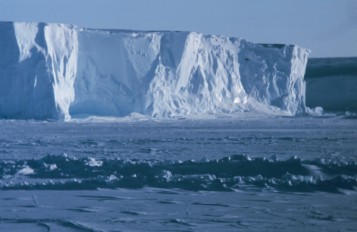
Glacial geoengineering could slow ice melting, claim glaciologists
Apr, 23, 2018 | NewsThree proposed geoengineering projects could buy us some time to address global warming Three pro...

The biggest glacier in East Antarctica is melting due to warm ocean water
Dec, 30, 2016 | NewsIf the Totten glacier melts, global sea levels will rise by 3.5 meters If the Totten glacier melt...
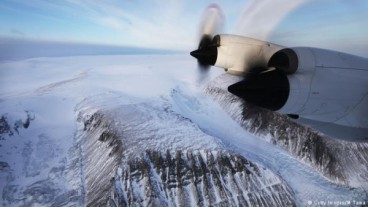
NASA flies over the poles to monitor ice loss
Jun, 22, 2017 | NewsSea ice in the Arctic reached the lowest maximum wintertime extent ever recorded Sea ice in the Arc...

Arctic Sea Ice Hits Record Low
Feb, 15, 2015 | NewsAccording to data from the NASA-supported National Snow and Ice Data Center (NSIDC) at the Universit...
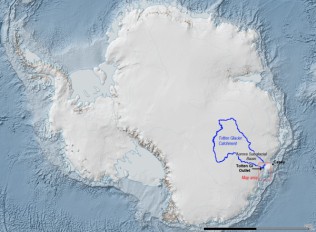
Hidden Flows Could Be Behind Antarctic Melt
Mar, 16, 2015 | NewsTwo previously unnoticed oceanic gateways of warm water have been linked to the extreme thinning of...
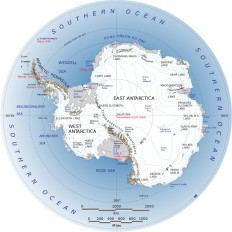
Antarctica's melting will result in higher sea-level rise than previously thought
Jun, 11, 2021 | NewsAccording to a new study, the global sea-level rise associated with the melting of Antarctica's ice...
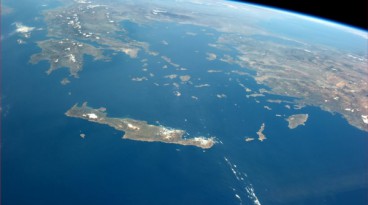
Horror Scenario For Coastal Areas
Jul, 29, 2015 | NewsClear warning from scientists, who note that the sea level rise may not be avoided even if the gover...
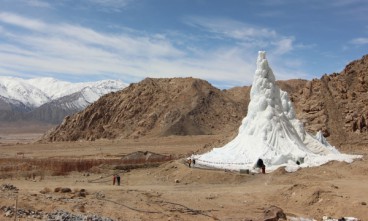
The ‘ice stupas’ could solve the water crisis in the high desert of the Himalayas
Jun, 15, 2018 | NewsArtificial glaciers are used to store the flowing winter water -that otherwise is wasted down the st...
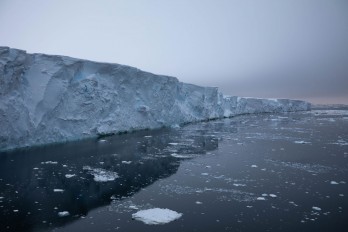
Geoengineering West Antarctic glacier to prevent a 3-meter sea level rise
Jul, 29, 2019 | NewsA group of scientists suggests a revolutionary strategy to prevent the collapse of the west Antarct...
Trending

Vertical gardens in Mexico City to combat pollution

Saudi Park Closed After 360 Big Pendulum Ride Crashes to Ground, 23 injured

Characteristics of Load Bearing Masonry Construction

Taipei 101’s impressive tuned mass damper

Dutch greenhouses have revolutionized modern farming

Federal court rules Biden’s offshore drilling ban unlawful


